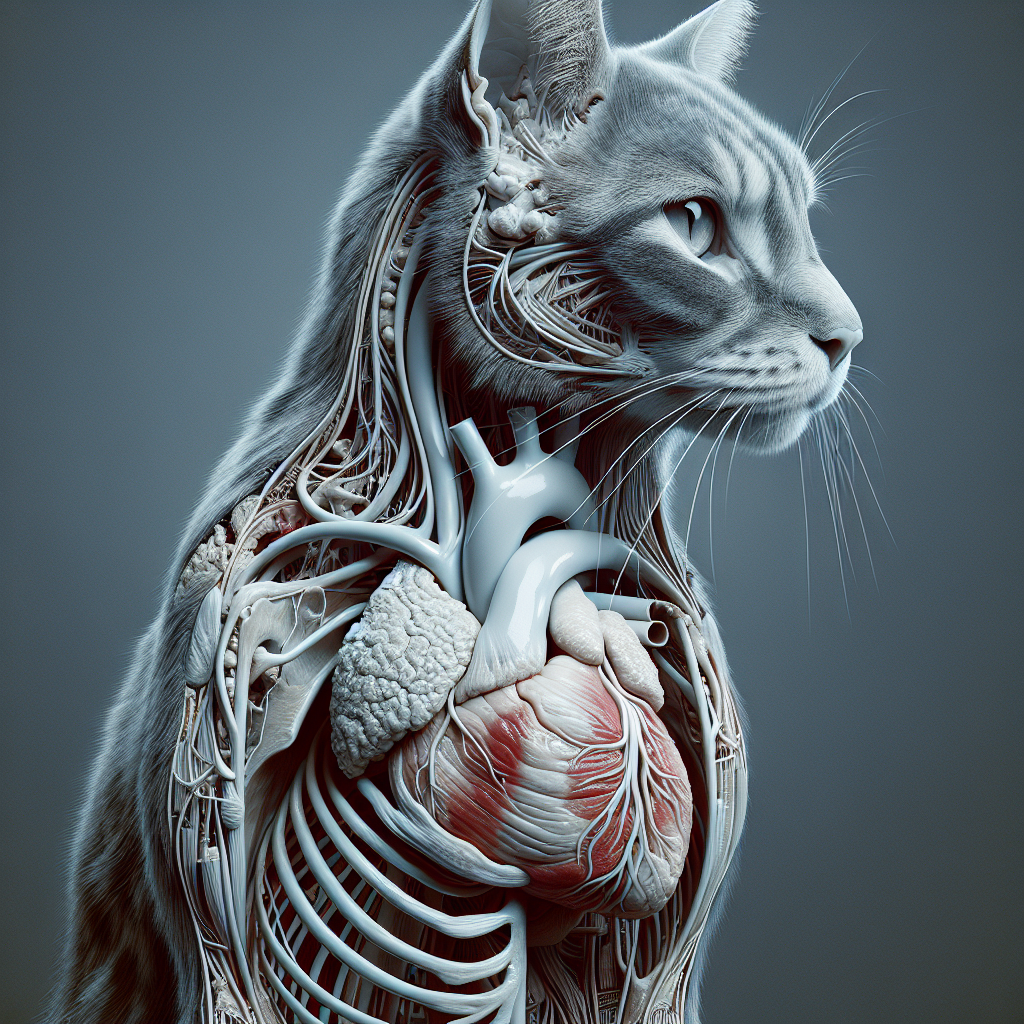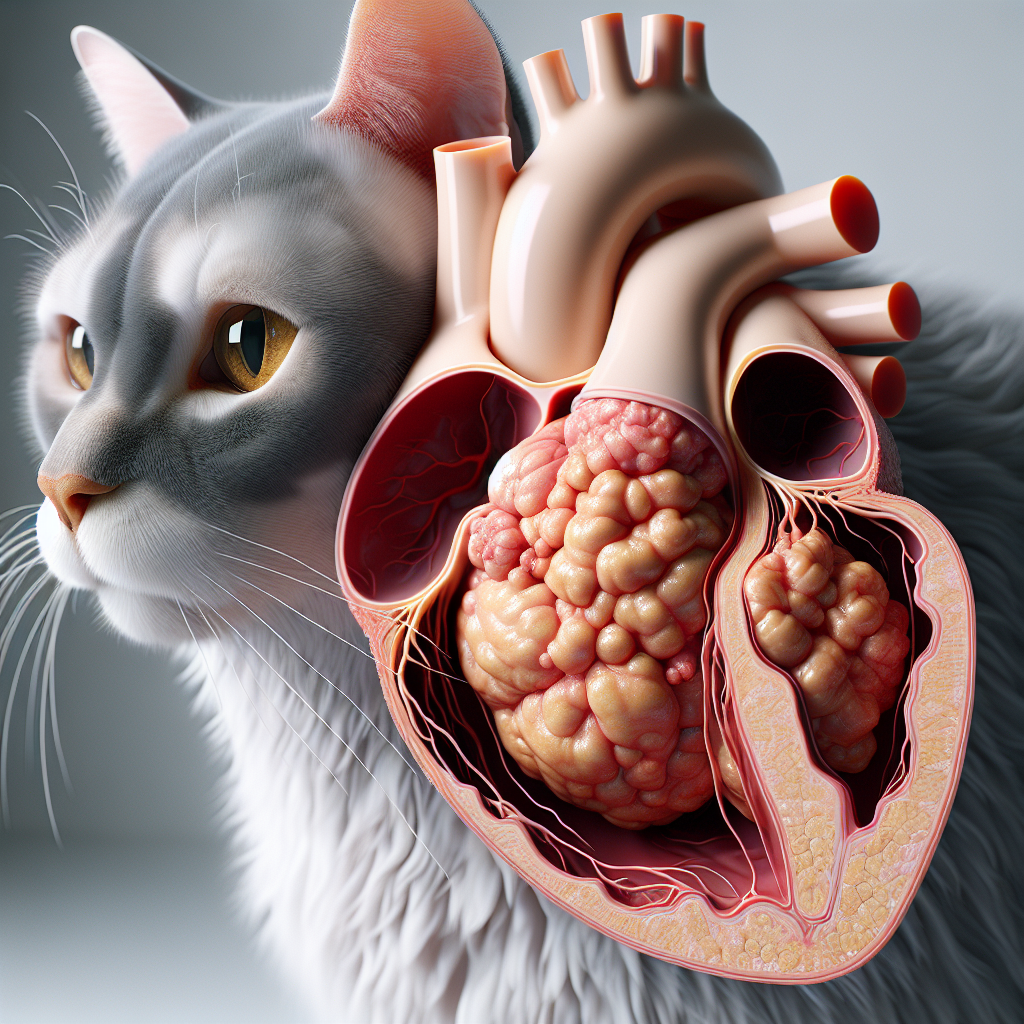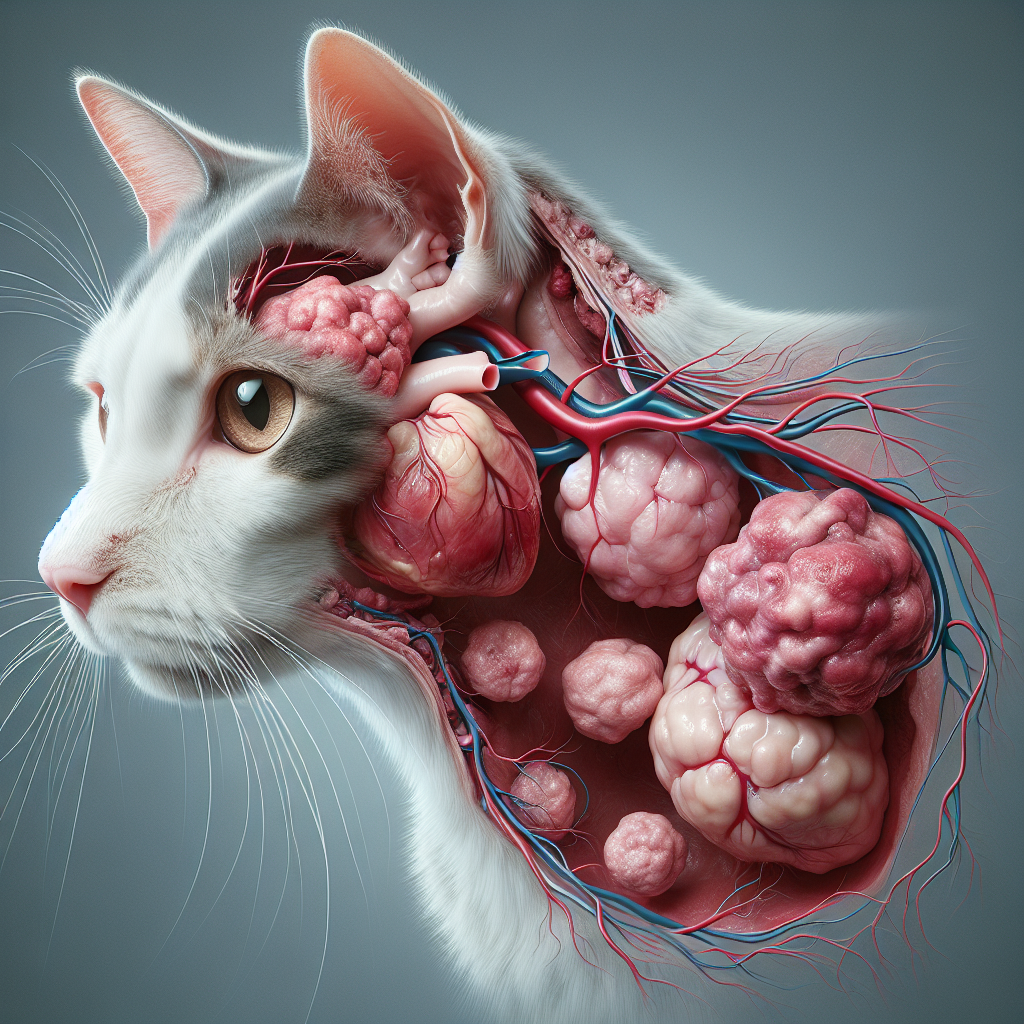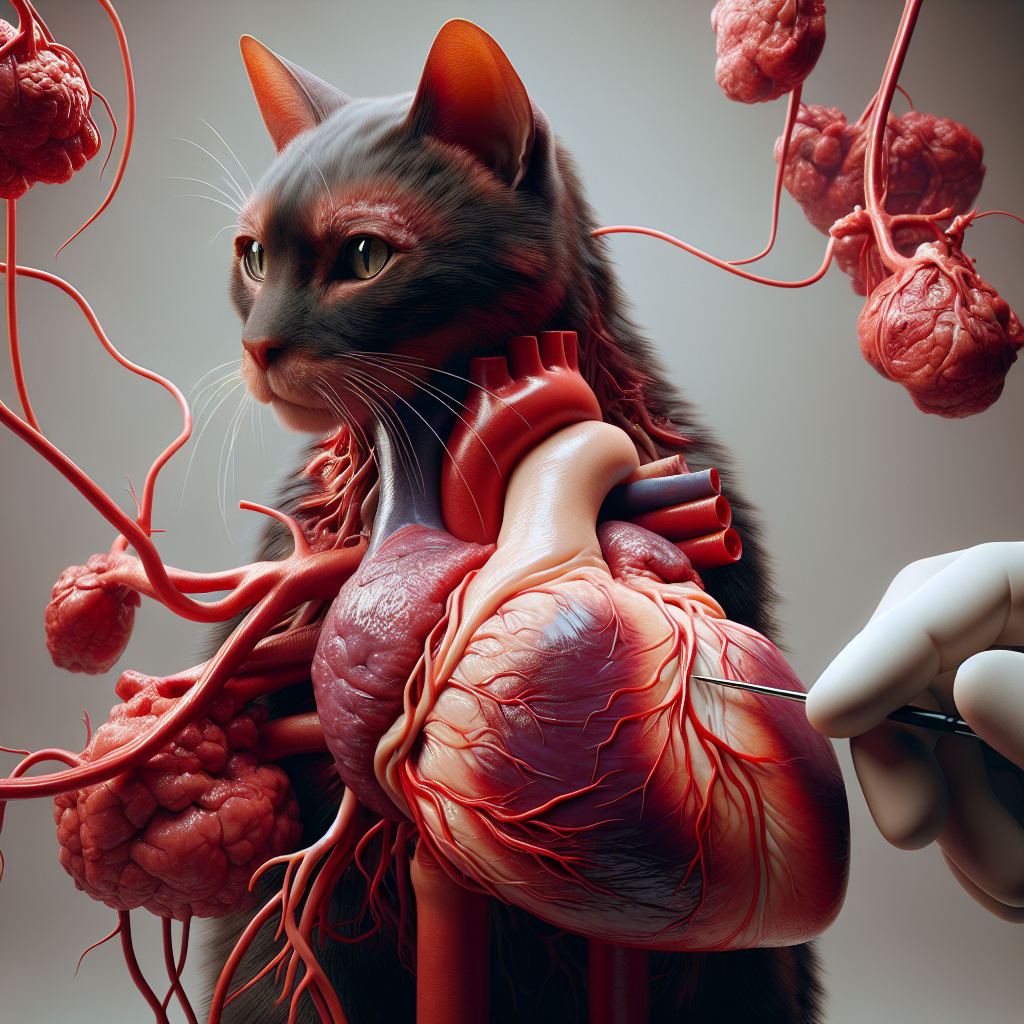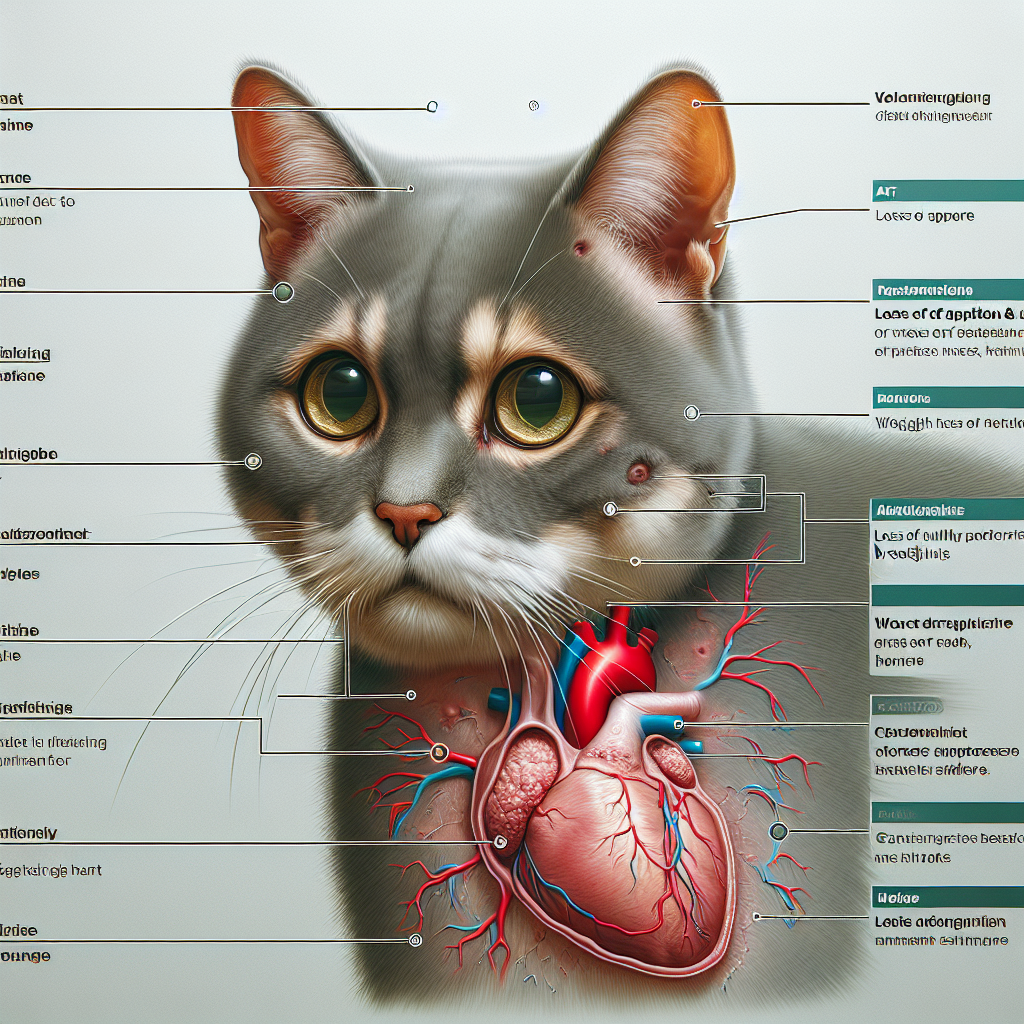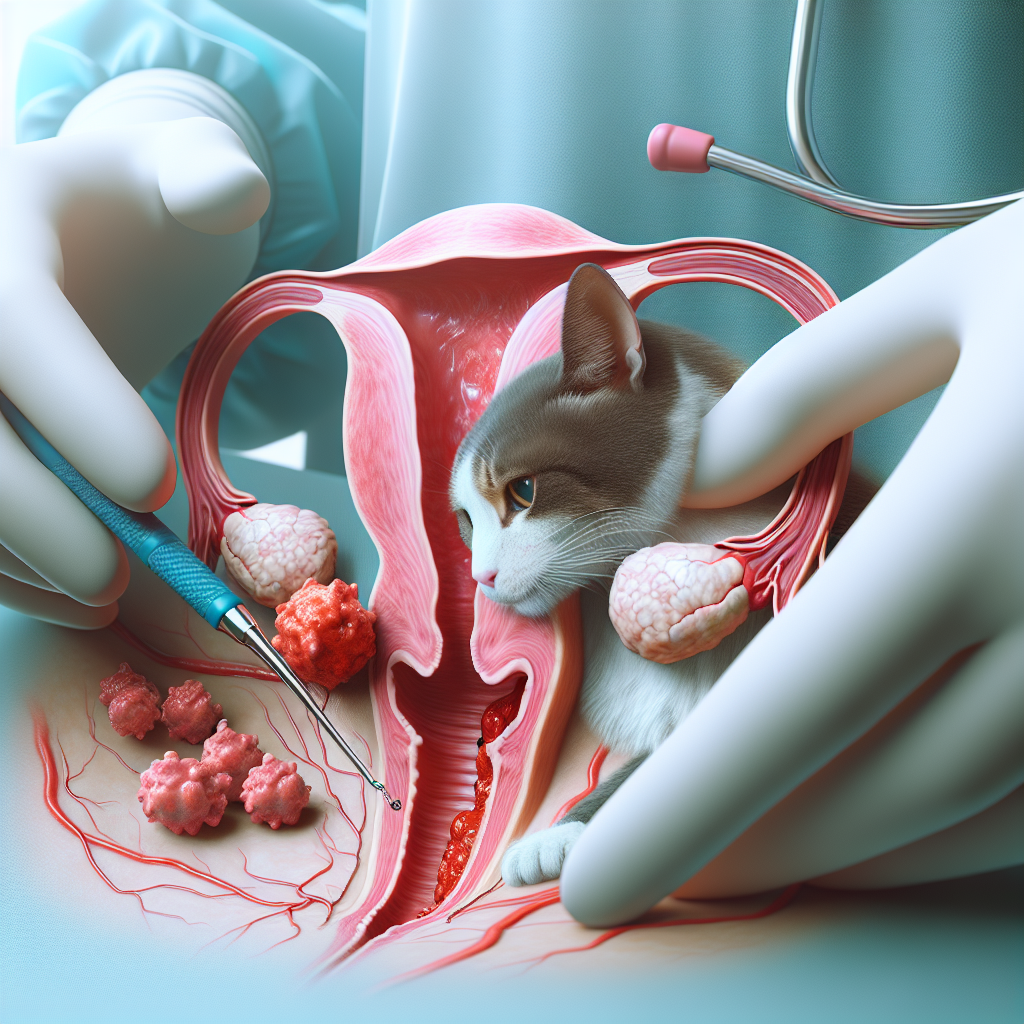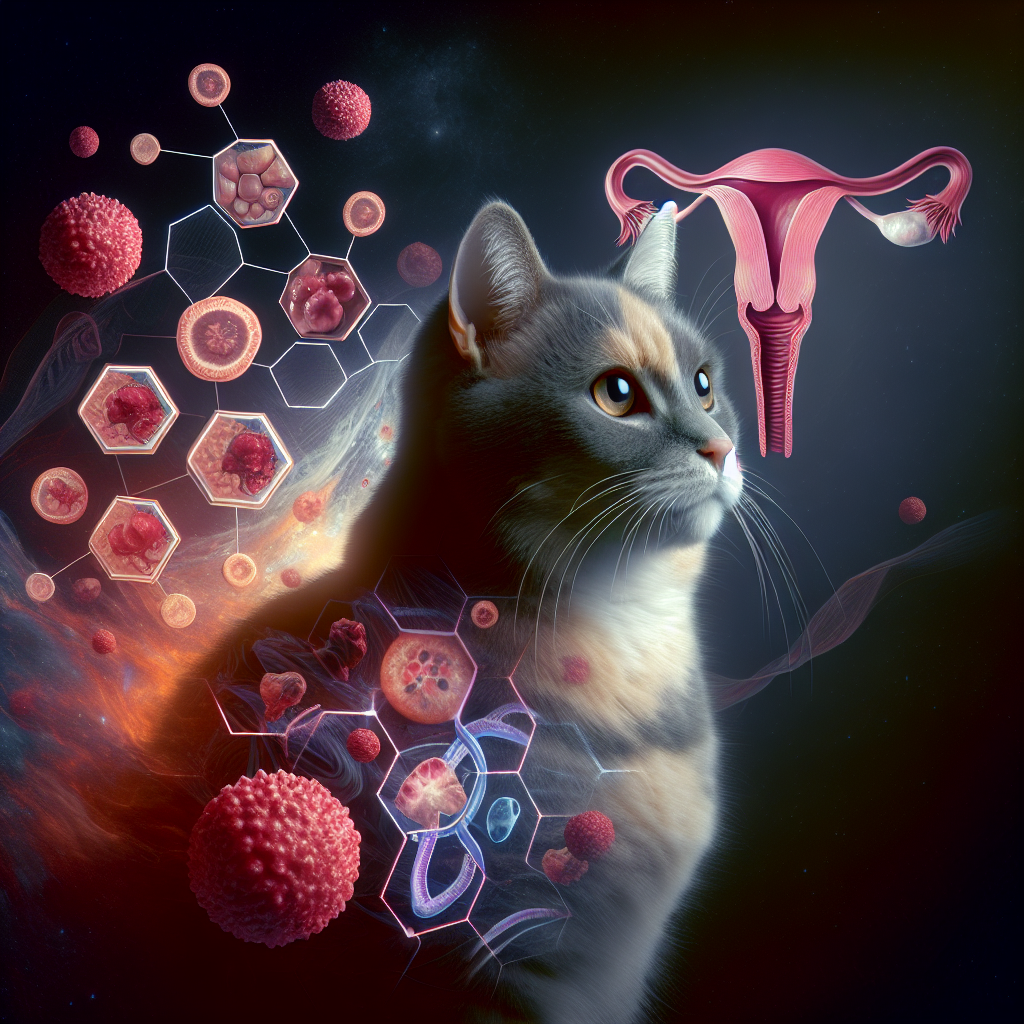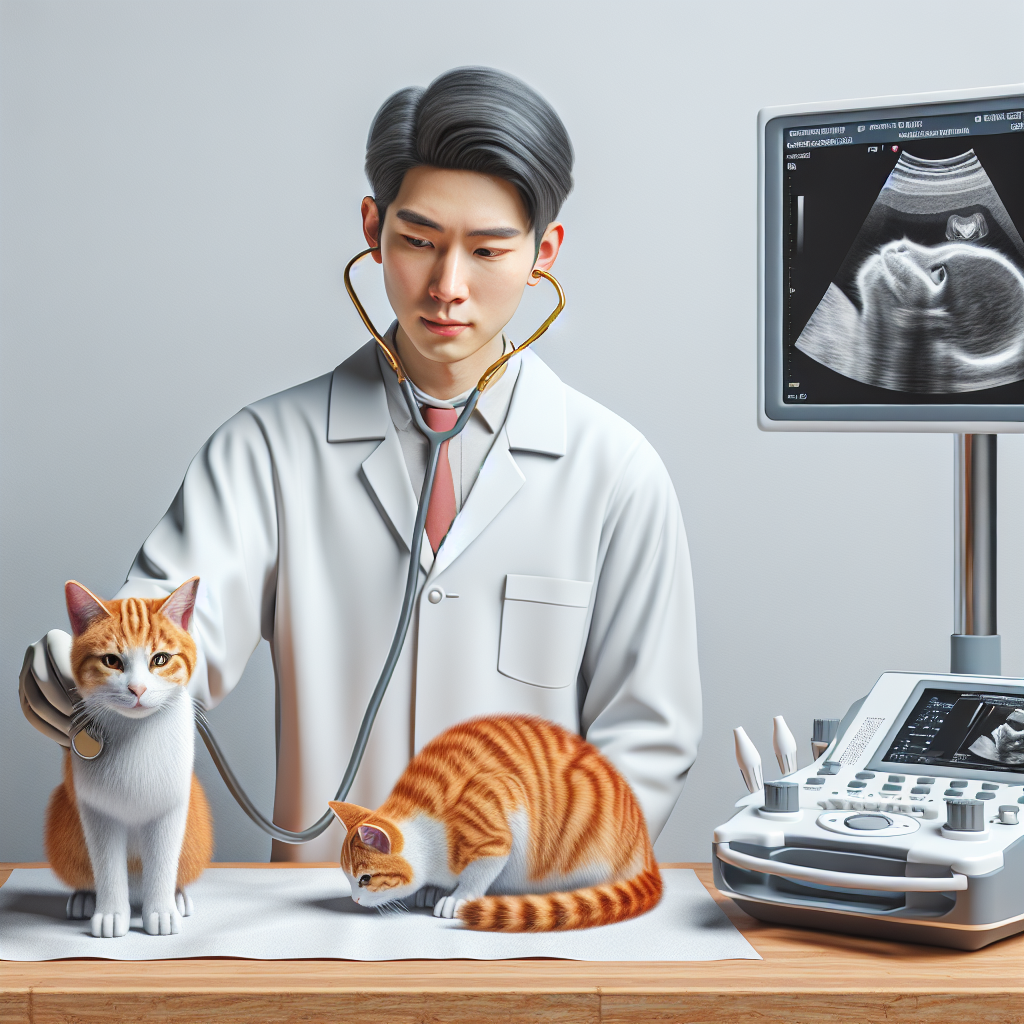Understanding Cardiac Muscle Tumors
When it comes to feline health conditions, cardiac muscle tumors are relatively rare but can have significant implications for a cat’s well-being. Understanding the different types of cardiac tumors, as well as their symptoms and diagnosis, is essential for early detection and appropriate treatment.
Types of Cardiac Tumors in Cats
Cardiac muscle tumors in cats can be classified into various types, including both benign and malignant forms. Some common types of cardiac tumors seen in cats include:
| Tumor Type | Description |
|---|---|
| Hemangiomas | Benign tumors arising from blood vessels |
| Hemangiosarcomas | Malignant tumors originating from blood vessels |
| Fibrosarcomas | Malignant tumors arising from fibrous tissue |
| Myxosarcomas | Malignant tumors found in the upper heart chambers |
| Rhabdomyosarcomas | Malignant tumors originating from skeletal muscle in the heart |
These tumors can occur in different locations within the heart, affecting its proper functioning. It’s important to note that cats can also develop secondary tumors that spread to the heart, including lymphomas, neurofibromas, granular cell tumors, and osteosarcomas (PetMD).
Symptoms and Diagnosis
The symptoms of cardiac muscle tumors in cats can vary depending on the type of tumor and its location within the heart. Common symptoms may include:
- Heart murmurs
- Irregular heart rhythms
- Difficulty breathing
- Coughing
- Exercise intolerance
- Lethargy
- Weakness
- Fainting or collapsing
If cardiac muscle tumors are suspected, a veterinary examination is crucial. The veterinarian may perform a thorough physical examination, listen for abnormal heart sounds, and conduct diagnostic tests to confirm the presence of a tumor. These tests may include:
- Radiographs (X-rays) of the chest to visualize the heart and detect abnormalities
- Echocardiography, an ultrasound examination of the heart, to assess the structure and function of the heart
- Electrocardiography (ECG) to evaluate the electrical activity of the heart
- Biopsy, which involves obtaining a small tissue sample from the tumor for microscopic analysis
Early diagnosis of cardiac muscle tumors can significantly improve the prognosis and treatment options for affected cats. If you notice any concerning symptoms in your feline companion, it’s important to consult with a veterinarian promptly.
In the next section, we will explore the causes of cardiac tumors in cats and the available prognosis and treatment options for managing this condition.
Causes and Prognosis
When it comes to cardiac muscle tumors in cats, the exact causes are still unknown. While benign tumors like Rhabdomyoma are believed to be congenital, malignant tumors result from an overgrowth of cells that do not follow the normal cell life cycle. Older cats are more likely to have malignant cardiac tumors. It’s important to note that cats suffer from neoplasia (development of tumors) less frequently than dogs, but when they do develop tumors, they are more likely to be malignant, causing serious disease (International Cat Care).
Causes of Cardiac Tumors in Cats
While the specific causes of cardiac tumors in cats remain unknown, certain risk factors may increase the likelihood of their development. These include:
- Age: Older cats have a higher risk of developing cardiac tumors.
- Breed Predisposition: Some breeds, such as Maine Coons and Siamese cats, may be more prone to developing cardiac tumors.
- Feline Leukemia Virus (FeLV) Infection: Cats infected with FeLV have an increased risk of developing certain types of tumors, including lymphoma and leukemia.
It’s important to consult with a veterinarian if you notice any cat heart tumor symptoms or signs of cardiac abnormalities in your cat. Early detection and diagnosis are key to providing appropriate treatment and improving the prognosis.
Prognosis and Treatment Options
The prognosis for cats with cardiac tumors varies depending on various factors, including the type of tumor, its location, and the extent of its spread. Malignant tumors generally have a poorer prognosis compared to benign tumors. Hemangioma tumors, for example, are generally harmless as they do not spread throughout the body. On the other hand, hemangiosarcoma tumors can affect the heart’s function and have the potential to spread to the liver, spleen, lungs, and heart if left untreated (Wagwalking).
Treatment options for cardiac tumors in cats may include:
- Surgical Resection: In some cases, surgical removal of the tumor may be possible. This approach is often considered for benign tumors or localized malignant tumors.
- Chemotherapy: Chemotherapy may be recommended for cats with malignant tumors that have spread or cannot be surgically removed. It aims to slow tumor growth and improve the cat’s quality of life.
The treatment approach will depend on the specific diagnosis and the cat’s overall health. It’s essential to work closely with a veterinarian to determine the most appropriate treatment plan for your cat. Regular monitoring and follow-up visits are crucial to evaluate the response to treatment and adjust the management accordingly.
In comparison to cardiac tumors in dogs, feline cardiac tumors tend to be more malignant and can cause more serious disease. Understanding the causes, prognosis, and available treatment options is vital for providing the best care for cats affected by cardiac muscle tumors. Advanced diagnostic techniques such as echocardiography, biopsy, and measuring cardiac troponin I levels can aid in the accurate diagnosis and assessment of the tumor’s severity.
Treatment Approaches
When it comes to addressing cardiac muscle tumors in cats, treatment approaches may vary depending on the type and severity of the tumor. In most cases, surgical resection is the recommended treatment, regardless of the extent or spread of the tumor. Chemotherapy may also be considered for malignant heart tumors, although the prognosis for such cases is generally guarded to poor.
Surgical Resection
Surgical resection is the primary treatment option for most types of heart tumors in cats. Even if the tumor is extensive or has spread, surgical removal is often recommended. The goal of surgical resection is to remove as much of the tumor as possible, reducing its impact on the heart’s function and potentially improving the cat’s quality of life.
The prognosis for cats undergoing surgical resection depends on several factors, including the severity of the tumor and whether it has spread to other parts of the body. Benign tumors are usually treated with surgical removal, which can lead to successful outcomes. On the other hand, malignant tumors may require a combination of chemotherapy and surgery to manage the disease.
Chemotherapy Considerations
In cases where the heart tumor is malignant, chemotherapy may be considered as part of the treatment plan. Chemotherapy involves the use of drugs to target and kill cancer cells in the body. It can be administered orally or through injections, and the specific drugs and treatment protocols may vary depending on the individual cat and the type of tumor.
Chemotherapy is a common treatment for cancer in cats, and many cats tolerate it well. The treatment may involve a combination of different drugs to increase effectiveness and reduce potential side effects. Chemotherapy aims to slow down the progression of the tumor, shrink its size, and improve the cat’s overall quality of life.
It’s important to note that while surgery and chemotherapy are common treatment approaches, the suitability of these options may vary based on the specific case and the recommendation of a veterinarian. The treatment plan should be tailored to the individual cat’s needs and the characteristics of the tumor.
To better understand the prognosis and explore treatment options, it’s essential to consult with a veterinarian who specializes in feline cardiac tumors. They can provide a comprehensive evaluation of the tumor’s severity, potential spread, and recommend the most appropriate treatment approach for your cat’s specific situation.
In the next section, we will delve into the importance of post-treatment monitoring and the evaluation of prognosis for cats with cardiac muscle tumors.
Monitoring and Follow-Up
After undergoing treatment for a cardiac muscle tumor in cats, it is crucial to closely monitor the cat’s condition and evaluate the prognosis. This involves post-treatment monitoring and regular follow-up appointments with the veterinarian.
Post-Treatment Monitoring
Post-treatment monitoring typically includes serial heart ultrasounds to assess the cat’s cardiac health and check for any signs of doxorubicin toxicity, especially if chemotherapy has been prescribed (PetMD). Chest x-rays may also be taken to ensure that the tumor has not spread beyond the heart.
During these follow-up appointments, the veterinarian will evaluate the cat’s overall well-being, monitor any potential side effects of the treatment, and assess the response to therapy. Regular check-ups and diagnostic tests are essential to track the progress and make any necessary adjustments to the treatment plan.
Prognosis Evaluation
The prognosis for cats with cardiac muscle tumors is generally guarded to poor, especially for malignant tumors. The severity of the tumor and whether it has spread throughout the body play a significant role in determining the prognosis.
It is important to remember that each case is unique, and the prognosis may vary depending on various factors, such as the specific type and stage of the tumor, the cat’s overall health, and the response to treatment. The veterinarian will provide insights into the cat’s prognosis based on the individual circumstances.
Regular follow-up appointments and open communication with the veterinarian are crucial to evaluate the cat’s progress, discuss any concerns, and make informed decisions regarding further treatment options or supportive care.
While the prognosis for cardiac muscle tumors in cats may be challenging, early detection, prompt treatment, and diligent monitoring can help improve the quality of life and provide the best possible care for the feline companion.
Please note that the cost of treating heart tumors in cats can vary, with an average range of $3,000 to $8,000. The actual cost may depend on various factors, including the specific treatment approach, diagnostic tests, and the overall health of the cat. It is important to discuss the financial aspects of treatment with the veterinarian to ensure proper planning and management.
By closely monitoring the cat’s condition and staying proactive with follow-up appointments, cat owners can provide the necessary support to their feline companions throughout the journey of managing cardiac muscle tumors.
Cardiac Tumors in Comparison
Cardiac tumors can affect both dogs and cats, but there are notable differences in their prevalence, types, and prognosis. Understanding these variations can provide valuable insights into the management and treatment of heart tumors in cats.
Cardiac Tumors in Dogs
In dogs, cardiac tumors are predominantly primary and malignant. The most common types of cardiac tumors in dogs include hemangiosarcoma, which is the leading cause, followed by chemodectoma. These tumors can pose life-threatening complications, such as pericardial effusion, congestive heart failure, blood flow obstruction, and arrhythmias (dvm360).
Cardiac Tumors: Cats vs. Dogs
When it comes to cardiac tumors, there are notable differences between cats and dogs. Cardiac tumors in cats are relatively rare compared to dogs. The majority of cardiac tumors in cats are primary, with lymphoma accounting for more than half of all cases (NCBI).
Feline cardiac lymphoma, a type of extranodal lymphoma, is the most frequently diagnosed cardiac tumor in cats. Unfortunately, it is often diagnosed post-mortem, making it challenging to detect and diagnose while the cat is still alive (NCBI). Cats, in general, have a lower incidence of neoplasia (tumor development) compared to dogs. However, when cats do develop tumors, they are more likely to be malignant, increasing the potential for serious disease (International Cat Care).
In terms of prognosis, cardiac tumors in both dogs and cats can lead to life-threatening complications. However, the specific prognosis can vary depending on the type of tumor, its location, and the extent of its spread. For dogs, hemangiosarcoma tumors can spread to the liver, spleen, lungs, and heart, potentially leading to other health problems, collapse, and death. Cats, on the other hand, may have a better prognosis for certain types of tumors, such as harmless hemangioma tumors that do not spread throughout the body.
By understanding the differences between cardiac tumors in dogs and cats, veterinarians and pet owners can tailor their approach to diagnosis, treatment, and prognosis. Regular veterinary check-ups, early detection, and timely intervention are crucial for managing cardiac tumors in both species.
Advanced Diagnostic Techniques
When it comes to diagnosing cardiac muscle tumors in cats, advanced diagnostic techniques play a crucial role in identifying the presence of tumors and determining the best course of action. Two such techniques are echocardiography and biopsy, along with the analysis of cardiac troponin I levels.
Echocardiography and Biopsy
Echocardiography is a non-invasive imaging technique that uses sound waves to create detailed images of the heart. It allows veterinarians to visualize the heart’s structure and function, providing valuable information about the presence of tumors. Echocardiography can help identify abnormal masses, their location within the heart, and their impact on cardiac function.
In cases where echocardiography reveals the presence of a suspicious mass, a cardiac biopsy may be recommended. A cardiac biopsy involves the removal of a small tissue sample from the heart for further examination. This procedure can provide important insights into the nature of the tumor and help guide treatment decisions.
A study published by NCBI suggests that cardiac needle biopsy cytology can be a valuable diagnostic tool in cats with unexplained myocardial hypertrophy, particularly when clinical findings differ from hypertrophic cardiomyopathy. By analyzing the tissue sample, veterinarians can determine whether the tumor is benign or malignant, aiding in the formulation of an appropriate treatment plan.
Cardiac Troponin I Levels
Cardiac troponin I is a protein that is released into the bloodstream when there is damage to the heart muscle. Elevated levels of cardiac troponin I can indicate the presence of cardiac tumors in cats. Measuring cardiac troponin I levels, along with analyzing myocardial deformation using two-dimensional speckle-tracking echocardiography, can be helpful in diagnosing cardiac tumors in cats (NCBI).
By assessing cardiac troponin I levels and analyzing myocardial deformation, veterinarians can gather additional diagnostic information to support the identification and understanding of cardiac tumors in cats. These findings, combined with echocardiography and biopsy results, contribute to a more comprehensive evaluation and guide appropriate treatment decisions.
When suspecting a cardiac muscle tumor, it is essential to consult with a veterinarian who specializes in cardiology. They have the expertise and access to advanced diagnostic techniques, such as echocardiography and biopsy, to accurately diagnose and manage cardiac tumors in cats.






